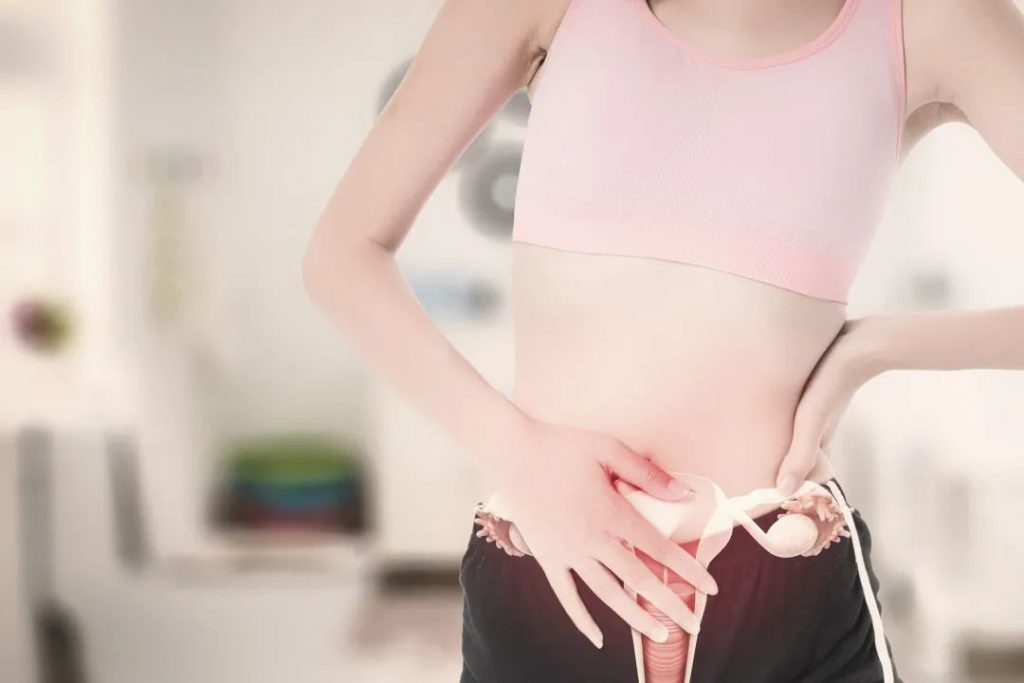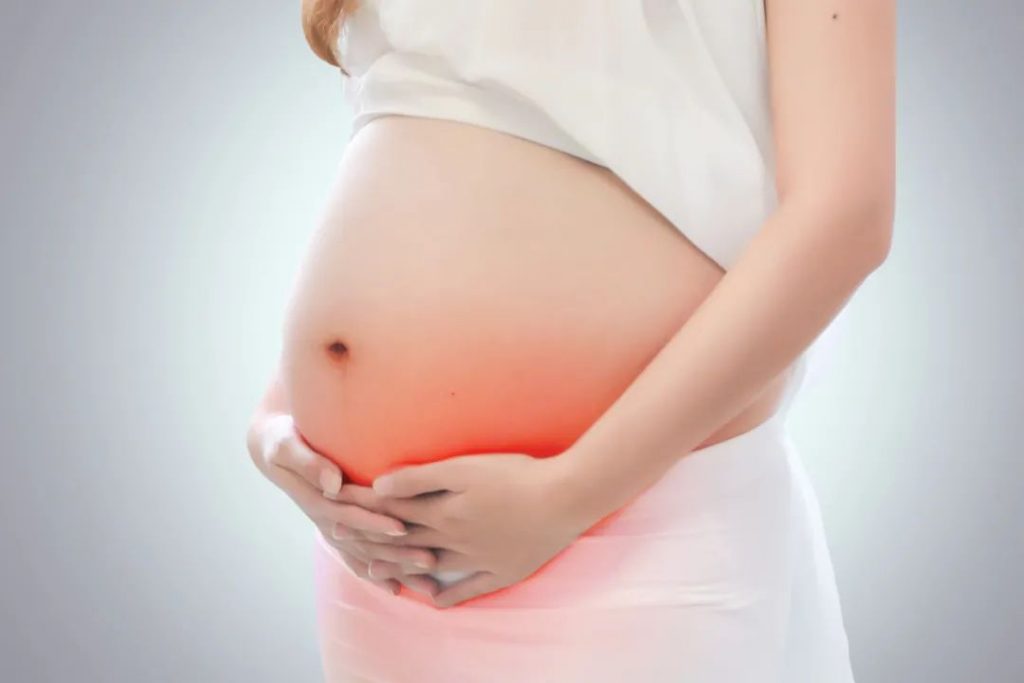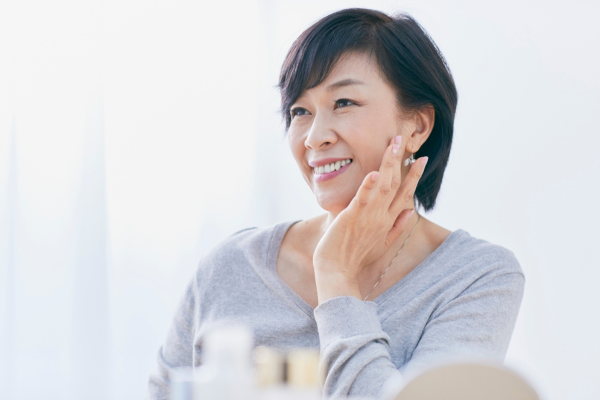
Cold Womb Ages You Faster – 4 TCM Tips to Warm Your Womb Naturally
Do you often feel cold in your lower belly, have dull skin, dark eye circles, or struggle with painful periods? These could be signs of a cold womb—a condition that many women in Singapore may overlook, but one that Traditional Chinese Medicine (TCM) takes very seriously.
In TCM, your “bao gong” (reproductive system) needs to be warm and nourished to maintain overall well-being, beauty, and fertility. A cold womb doesn’t just affect your periods—it can speed up aging, make it harder to conceive, and lead to a host of gynaecological problems.

What Is a Cold Womb in TCM?
In TCM terms, a cold womb means your reproductive system—uterus, ovaries, and fallopian tubes—lacks warmth and vital energy. This causes poor circulation of blood and qi, leading to symptoms like:
Cold hands and feet
Menstrual cramps, irregular periods
Low libido, abnormal discharge
Infertility or frequent miscarriages
Dull skin, pigmentation, and dark eye circles
Water retention, fatigue, back pain
TCM Singapore practitioners often explain it as a yang deficiency or internal cold that settles in the womb due to poor lifestyle habits or body constitution.

Common Habits That Cause a Cold Womb
Many daily habits in sunny Singapore can still lead to internal cold. Here’s what to watch out for:
1. Overeating Cold Food
Even though the weather’s hot, overindulging in cold drinks, iced desserts, raw salads, and fruits like watermelon weakens your yang energy and lets cold sink into the womb.
2. Extreme Dieting or Over-Exercising
Crash diets or excessive workouts drain the body’s energy. This “empty heat” creates an opening for cold to enter and lodge in the womb, disrupting menstruation and ovulation.
3. Dressing Too Light or Exposing the Belly
Wearing crop tops or thin layers in air-conditioned spaces lets cold in through key areas like the belly button (shenque) and lower back (mingmen)—important energy points in TCM.
4. Overuse of Air-Conditioning
Staying long hours in air-con rooms or letting cold air blow directly onto your body, especially after sweating, causes cold to penetrate deep into the uterus.

4 TCM Tips to Warm Your Cold Womb
If you suspect you have a cold womb, don’t worry—TCM Singapore treatments focus on natural, non-invasive methods to bring warmth and balance back to the body. Start with these four self-care tips:
1. Keep Your Abdomen Warm
Always protect your lower belly and back, especially in cold environments. Use a heat pack or wear a shawl in air-conditioned offices. Go outside during lunch breaks to soak in natural sunlight.
2. Eat Warming Foods
Avoid cold, raw, or “liang” foods. Instead, eat TCM-recommended warming ingredients like ginger, red dates, longan, lamb, chicken, onions, and goji berries.
Pro Tip: Drink ginger-red date tea after meals to boost circulation and dispel internal cold.
3. Try Moxibustion (TCM Therapy)
Moxibustion is a common TCM therapy in Singapore clinics that uses heated mugwort (ai ye) to warm key acupoints like guan yuan, qi hai, and shen que. It helps improve womb warmth, boost immunity, and ease menstrual discomfort.
4. Stay Active
“Movement generates yang.” Light exercises like walking, yoga, or zhan zhuang (TCM standing meditation) can awaken your body’s natural warmth and help prevent cold from accumulating.
Looking for an experienced TCM practitioner in Singapore?
Final Thoughts: Don’t Let a Cold Womb Affect Your Health
A cold womb isn’t just a TCM term—it’s a real concern for women’s health. Whether you’re trying to conceive, struggling with skin and period issues, or simply want to age slower and feel better, warming your womb is key.
If you’re experiencing signs of a cold womb, consider visiting a TCM Singapore practitioner for personalized guidance. Early care and prevention go a long way in restoring vitality and confidence from the inside out.
Recent Post
-
 18 Aug 2025Sudden Stomach Pain? Don’t Panic — 3 TCM Methods to Soothe Your Stomach Quickly
18 Aug 2025Sudden Stomach Pain? Don’t Panic — 3 TCM Methods to Soothe Your Stomach Quickly -
 18 Aug 20254 Easy Ways to Boost Qi & Blood for Anti-Aging
18 Aug 20254 Easy Ways to Boost Qi & Blood for Anti-Aging -
 05 Aug 2025Guo An Tang TCM Herbal Tips: Qi Boosting & Spleen-Strengthening
05 Aug 2025Guo An Tang TCM Herbal Tips: Qi Boosting & Spleen-Strengthening -
 05 Aug 2025Guo An Tang TCM Herbal Tips : Relieve Summer Heat the Natural Way
05 Aug 2025Guo An Tang TCM Herbal Tips : Relieve Summer Heat the Natural Way -
 01 Aug 20253 Powerful Acupoints to Relieve Rhinitis During the 30 Days of Sanfu
01 Aug 20253 Powerful Acupoints to Relieve Rhinitis During the 30 Days of Sanfu -
 29 Jul 20255 Nighttime Foods to Avoid for Deep, Restful Sleep
29 Jul 20255 Nighttime Foods to Avoid for Deep, Restful Sleep -
 29 Jul 2025World Hepatitis Day — Time to Show Some Love to Your Liver
29 Jul 2025World Hepatitis Day — Time to Show Some Love to Your Liver -
 11 Jul 20253 TCM Causes of Uterine Fibroids Every Woman Should Know”
11 Jul 20253 TCM Causes of Uterine Fibroids Every Woman Should Know” -
 03 Jul 2025Why Moxibustion During Sanfu Days Is a Must in TCM Singapore
03 Jul 2025Why Moxibustion During Sanfu Days Is a Must in TCM Singapore -
 03 Jul 2025Top 5 TCM Tips to Relieve Lumbar Strain
03 Jul 2025Top 5 TCM Tips to Relieve Lumbar Strain